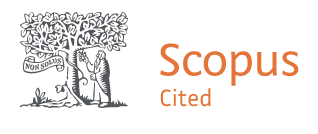The Implementation of Transportation Inclusion as a Social Welfare Policy Supporting Students Mobility
DOI:
https://doi.org/10.55324/iss.v2i8.454Keywords:
students, social welfare policy, transporation, subsidies, mobilityAbstract
Background: East Jakarta City experienced the largest increase in the number of students in DKI Jakarta Province. The large number of students participating was followed by the many problems experienced by students such as the cost of transportation expenses for students. The DKI Jakarta Provincial Government issued a Jak Lingko transportation service policy as one of the steps to solving the problem.
Aim: The focus of the research is to describe and analyze the implementation of the Jak Lingko transportation policy for the welfare of students in the City of East Jakarta as a form of supporting mobility.
Method: This research approach is qualitative with descriptive research type. Interviews were conducted with 15 informants using a purposive sampling technique.
Findings: The results of the study show that there are aspects of social welfare policy in the implementation of the Jak Lingko transportation policy that have fulfilled the basic Jak Lingko subsidy policy for students, the type of subsidy of the Jak Lingko subsidy policy, the process of distributing the Jak Lingko subsidy policy for students, and the funding system in accordance with Jak Lingko subsidy policy for students. There are obstacles in the implementation of the Jak Lingko transportation policy for students, namely the timeliness of the arrival of the Jak Lingko fleet has not been achieved.
References
Adi, I. R. (2018). Kesejahteraan Sosial (Pekerjaan Sosial, Pembangunan Sosial dan Kajian Pembangunan). Rajawali Pers.
Badan Pusat Statistik Provinsi DKI Jakarta. (2022). Jumlah korban kecelakaan lalu lintas menurut profesi di Provinsi DKI Jakarta 2016-2021.
Blau, J., & Abramovitz, M. (2004). The dynamics of social welfare policy. Oxford University Press.
Dinitto, D. M., & Johnson, D. H. (2016). Social welfare: Politics and public policy. Pearson.
Gilbert, N., & Terrell, P. (2013). Dimensions of social welfare policy. Pearson.
Kadarisman, M., Gunawan, A., & Ismiyati, I. (2017). Kebijakan manajemen transportasi darat dan dampaknya terhadap perekonomian masyarakat di Kota Depok. Jurnal Manajemen Transportasi Dan Logistik, 3(1), 41. https://doi.org/10.25292/j.mtl.v3i1.140
Kementerian Koordinator Bidang Pembangunan Manusia dan Kebudayaan. (2020). Pemerintah berkomitmen wujudkan bonus demografi yang berkualitas. KemenkoPMK.
Kementerian Pendidikan, Kebudayaan, Riset dan Teknologi. (2022). Angka Putus Sekolah di Seluruh Indonesia.
Kementerian Pendidikan, Kebudayaan, Riset dan Teknologi. (2023). Data Peserta Didik Provinsi DKI Jakarta Tahun Pelajaran 2022/2023.
Lucas, K., & Musso, A. (2014). Policies for social inclusion in transportation: An introduction to the special issue. Case Studies on Transport Policy, 2(2), 37–40. https://doi.org/10.1016/j.cstp.2014.06.002
Midgley, J. (1995). Social development: The developmental perspective in social welfare. Sage Publications Ltd.
Neuman, W. L. (2014). Social research methods: Qualitative and quantitative approaches. Teaching Sociology, 30(3). https://doi.org/10.2307/3211488
Park, W. K., Song, J. H., Kim, S. R., Kim, T. H., & Iwasaki, M. (2012). Fabrication of a pure TiO 2? thin film using a self-polymeric titania nano-sol and its properties. Journal of Nanoscience and Nanotechnology, 12(2), 1174–1178. https://doi.org/10.1166/jnn.2012.4668
Peraturan Gubernur Provinsi DKI Jakarta Nomor 62 Tahun 2016 tentang Kewajiban Pelayanan Publik dan Pemberian Subsidi.
Republika News. (2022). Survei biaya transpirtasi warga DKI Rp 500 ribu Per Bulan.
Rubin, A., & Babbie, E. R. (2011). Research methods for social workers. In Research Methods for Social Workers (Seventh Ed). Thomson Brooks/Cole. https://doi.org/10.1057/978-1-137-44283-3
Stanley, J., & Stanley, J. (2017). The importance of transport for social inclusion. Social Inclusion, 5(4), 108–115. https://doi.org/10.17645/si.v5i4.1289
Downloads
Published
Issue
Section
License
Copyright (c) 2023 Sri Nani, Bambang Shergi Laksmono

This work is licensed under a Creative Commons Attribution-ShareAlike 4.0 International License.
Authors who publish with this journal agree to the following terms:
- Authors retain copyright and grant the journal right of first publication with the work simultaneously licensed under a Creative Commons Attribution-ShareAlike 4.0 International. that allows others to share the work with an acknowledgement of the work's authorship and initial publication in this journal.
- Authors are able to enter into separate, additional contractual arrangements for the non-exclusive distribution of the journal's published version of the work (e.g., post it to an institutional repository or publish it in a book), with an acknowledgement of its initial publication in this journal.
- Authors are permitted and encouraged to post their work online (e.g., in institutional repositories or on their website) prior to and during the submission process, as it can lead to productive exchanges, as well as earlier and greater citation of published work.








